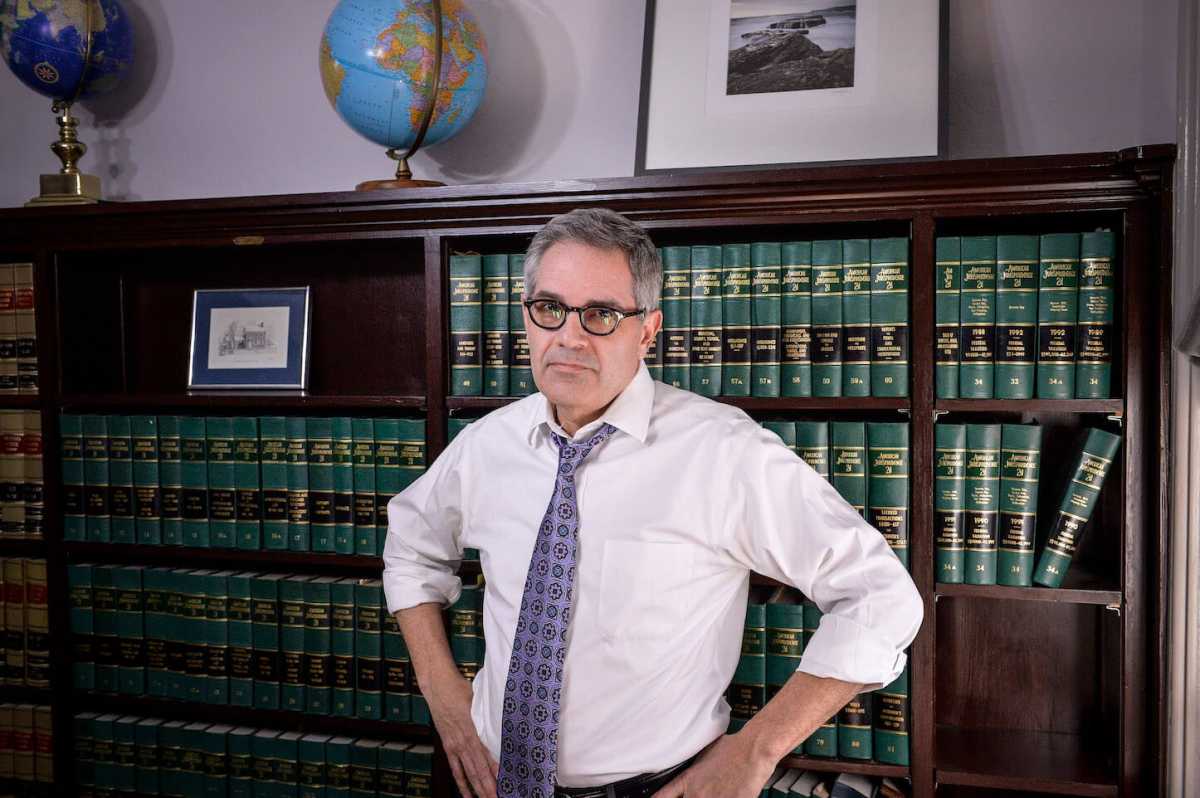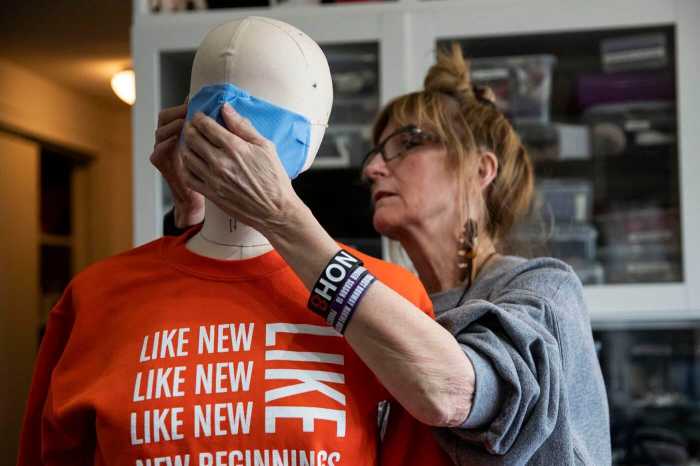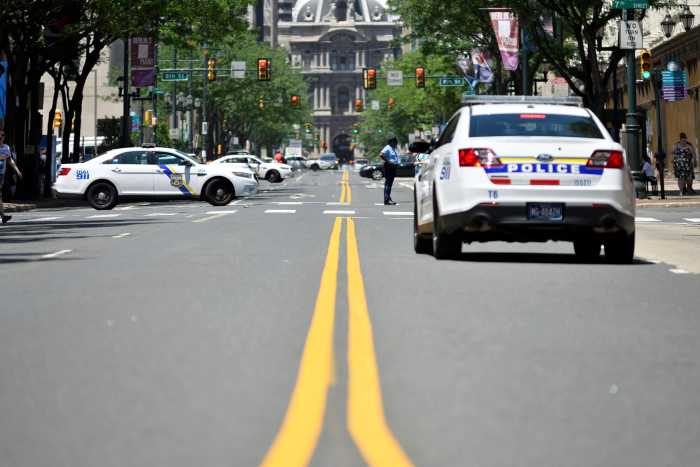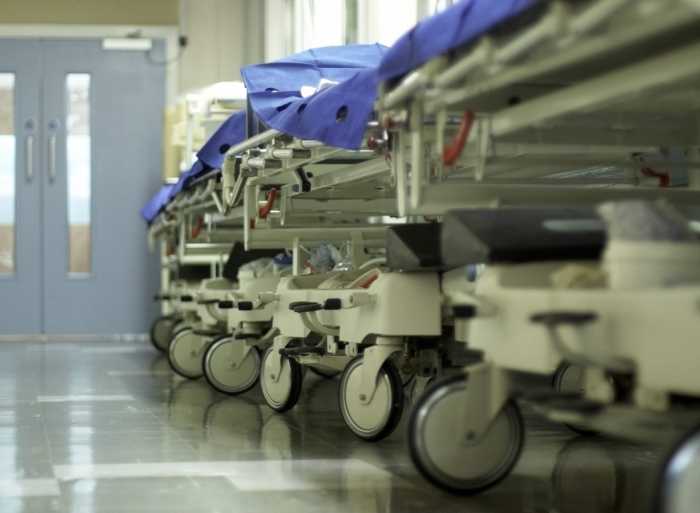District Attorney Larry Krasner says his office has identified 1,997 inmates in Philadelphia jails who judges should consider releasing in the wake of the COVID-19 pandemic.
Krasner, Chief Defender Keir Bradford-Grey and criminal justice advocates have pushed to have jails dramatically depopulated to prevent the spread of the virus, and they believe the city’s court system is moving too slowly.
The first coronavirus case inside the city’s jail complex on State Road in Northeast Philly was reported March 27. As of Monday, 54 inmates had contracted the virus and one has been hospitalized, officials said.
On Tuesday, the First Judicial District will open up four courtrooms for expedited review hearings, which will be conducted over the phone. Each judge plans to preside over 30 cases a day, Tuesday through Thursday, though the program could be expanded in the future.
Previously, cases were being heard by written motions and petitions, which Krasner and Bradford-Grey said was cumbersome.
Inmates who have already served their minimum sentence; are charged with economic crimes; or whose bail is less than $25,000, provided they are not accused of sex, gun, drug or violent offenses, will be given priority.
Krasner and Bradford-Grey said just 7 percent of inmates fall into those categories. Moreover, they believe the First Judicial District has been sluggish in responding to the pandemic.
“We would have done this two weeks ago,” Krasner told reporters Friday evening in a joint press conference with Bradford-Grey.
Moreover, they believe the review process should involve more judges who handle more than 30 cases a day. Bradford-Grey said a lot of the inmates are “no-brainers” for release and would have been out if the virus had not shut down most court functions.
“It’s something that’s dire, and it’s something that needs to happen right now,” she said.
Among those whom the DA’s Office believe could potentially be released include people held for technical parole violations, people who are being held on less than $50,000 bail, inmates who are less than 6 months from completing their minimum sentences, and women.
No one charged with sex offenses, violent crimes, firearm violations and selling drugs would be eligible for early release under the proposal.
Not all inmates who fall within those parameters should be released, Krasner cautioned, but the DA’s Office and defense attorneys want a streamlined process where cases are heard quickly, without mounds of paperwork.
There’s no magic number, but Krasner and Bradford-Grey want to get to a place where social distancing is somewhat possible inside the walls. Right now, the city’s jail population is in the mid-4,000s, with about 2,000 cells for men and 375 for women, according to the DA’s Office.
“There’s a least a couple thousand people who are inmates who are worthy of taking a look, and there may be a second wave of people who are worthy of taking a look,” Krasner said.
Judicial leaders say they’ve been waiting for a list of cases from the DA’s Office to review, though Kranser said prosecutors have sent over seven such lists.
Mayor Jim Kenney is far less critical of how the court system has handled the situation. Managing Director Brian Abernathy said the city appreciates the court’s leadership and plan to hold more hearings this week.
“This is not something we can do to just open the doors and let people out,” Kenney said Monday. “We think it’s going at an adequate pace.”
“We’re going as fast as humanly possible,” he added.
Abernathy on Friday said inmates in the city’s prisons are now, more or less, sheltering in place. They are only allowed outside of their cells for showers and phone calls, and food and medication are delivered.
All inmates are being provided with masks, and they are tested if they have symptoms, Abernathy said.
Others, beside Bradford-Grey and Krasner, have raised alarm about the situation.
A group of mostly academics, including several University of Pennsylvania professors, penned a letter to the First Judicial District urging judges to pick up the pace.
“As infectious diseases scholars, physicians, professors, lawyers, and community members, we are extremely concerned about this looming disaster,” they wrote.
City Council members Kendra Brooks, Helen Gym, Jamie Gauthier, Kenyatta Johnson, Katherine Gilmore Richardson, Derek Green and Isaiah Thomas threw their support behind a state Supreme Court petition that would have ordered certain inmates be released from county jails.
The Supreme Court rejected the petition, filed by the American Civil Liberties Union of Pennsylvania, but it did order local courts to take steps to meet the Centers for Disease Control and Prevention guidelines by reducing jail populations if necessary and limiting new inmates.



























